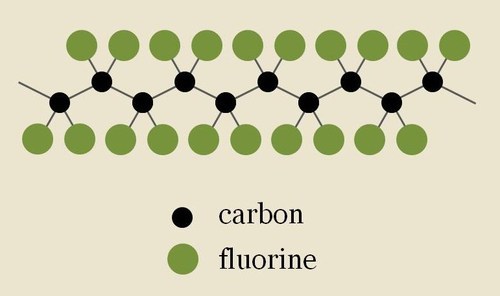If you've ever been in possession of a frying pan, you're likely to have heard of something called Teflon. Those of you familiar with organic chemistry might know that this is but the DuPont company's brand moniker for what is simply polytetrafluroethylene. [Not so simple, after all.] A chemist named Roy Plunkett accidentally invented the slippery PTFE while trying to create a new chlorofluorocarbon in a New Jersey laboratory. Today, the substance's slippery property is used primarily to create grease-proof coatings on various utilities, especially, cooking pans.
However, within 2 to 5 minutes on the stove, cookware coated in Teflon exceeds temperatures at which the coating breaks apart and emits toxic particles- an effect that has experimentally suggested, time again, to be carcinogenic. PTFE is currently classified by the EPA as 'likely carcinogenic'. You can find more statistics on PTFE/PFOA at the Human Toxome project, here. A study in 1993 found that 3M workers involved in manufacturing PFOA were three times
as likely to die of prostate cancer as those who weren't -the difference
was statistically significant, but because of the small number of deaths
overall, the researchers warn that "results must be interpreted catiously." The DuPont has responded to this study as well as other similar ones by maintaining that
the "weight of evidence suggests that PFOA exposure does not cause
cancer in humans"- a statement that you would be wise not to bet your health upon, given that it was made by the manufacturer.
As an alternative, you can always use stainless steel or cast iron cookware. There are several PTFE/PFOA free kitchenware options available- notably Greenpan.
To summarize: Teflon coated non-stick pans have been experimentally shown to display carcinogenic and toxic effects. Eliminating Teflon from your kitchen can perhaps only make things better.




No comments:
Post a Comment